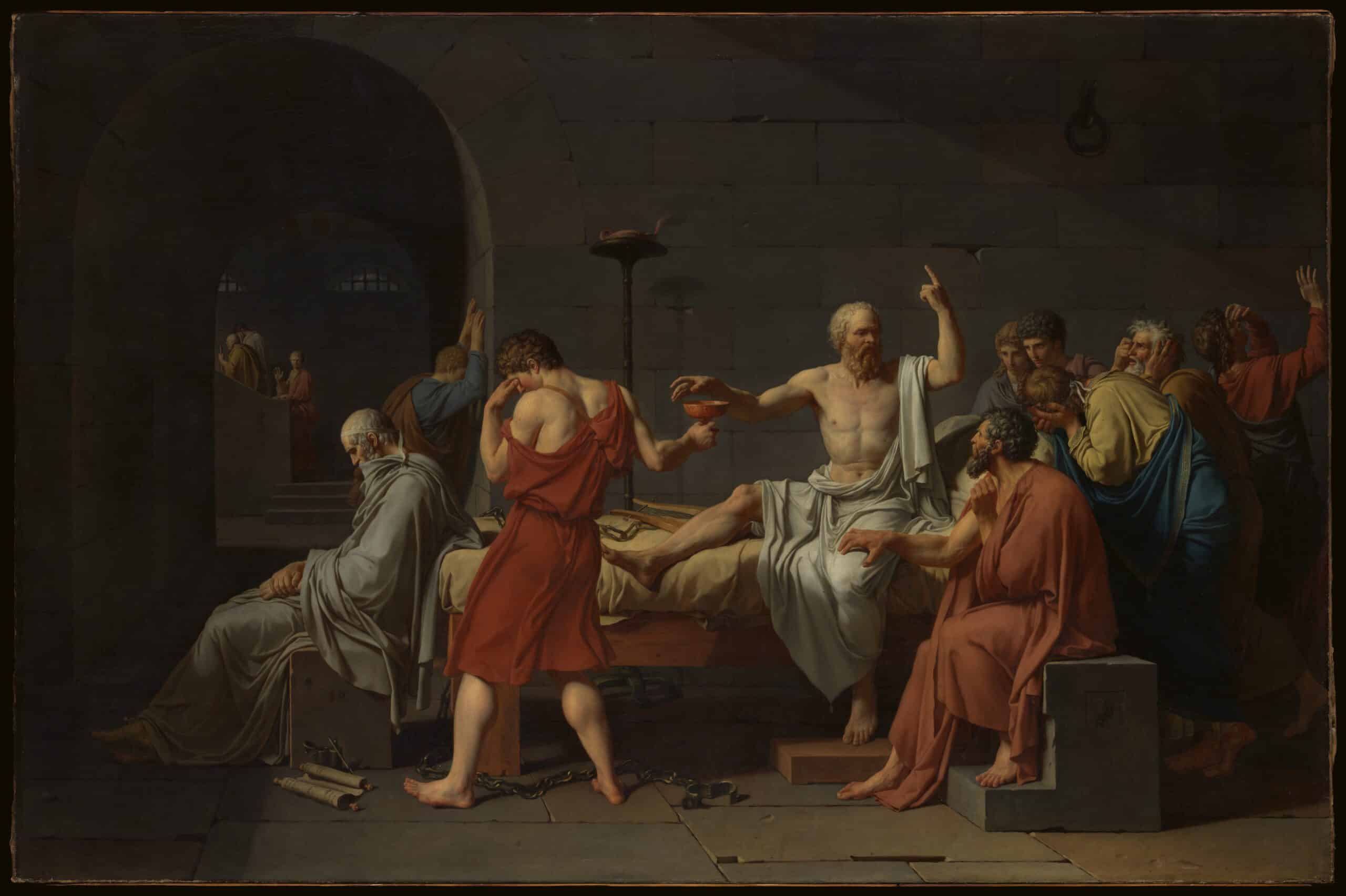
KNOWLEDGE IN THE MODERN AGE: MY STORY
So what is knowledge? The Oxford Dictionary defines knowledge as the sum of what is known. But much more than that, we often have been told that knowledge is power.
And I find that to be so true because I felt truly powerless at one point in my life. You see I was a graduate student at the time, who had a deep passion for business. And one fine day, a friend of mine had approached me about a brilliant business idea to be developed in Hong Kong; basically he wanted me to invest a large portion of my life savings into this venture if I were to come onboard. There’s just one problem though. Both my friend and I, have never really lived in Asia. There was no possible reference point for me to make an informed decision. In many ways, I felt blinded and very much in the dark. So what did I do? I did what most graduate students would do, 7 years ago. I went to the library and bookstores. I found, loaned and bought every publication I possibly could on doing business in Asia, from titles like The Economist to the For Dummies books. Yes, I went that low. Information on the internet was also lacking. Many of the sites focusing on Asia such as ourselves, unfortunately, just did not exist. So honestly, all in all, I still felt very much powerless. So what did I do? Being young, YOLO, I thought, trust my guts, go ahead, take the plunge and I decided to go with the venture. A year later, I am very proud to say, that I lost all my investment, the business failed. Now I say I am proud because it was such a tragic failure on a monumental level that I was really shaken and sat down and thought about how powerless I was. How knowledge is power. I never wanted to experience that again and I never want others to ever experience what I did. So I committed myself to filling the knowledge gap I knew existed that I faced.
I decided to contribute to knowledge creation, by starting a print publication in the U.S. dedicated to educating others on the insights of Asian entrepreneurship. No longer should there be a veil. No longer should anyone feel like they’re in the dark. No longer should anyone feel like they are powerless. The great news was almost immediately, our publication kicked off. Within a year we achieved major readership and distribution points in the the country. We became profitable, we reinvested to achieve more distribution and hire more writers, so we could create more knowledge. But despite this growth, it was not enough. I felt, that the knowledge created should not just be available in the U.S. We should create this knowledge people all over the world, who may have felt what I felt. The problem was how to do we achieve global knowledge creation under the print model that we started with. It was too damn expensive to do so.
After much deliberation and thought, we took the radical step, rather than focus on knowledge creation the way it was done traditionally, we went online. Years later, I am proud to say, we are now the largest content repository of collective knowledge from Asia, having published over 1 million open access articles beyond just business knowledge as we advanced into the fields of wider social science. Today, I really want to put this shift into perspective and write briefly about what I’ve learnt from this journey and what it means for knowledge creation in the age of digital media and hopefully, hopefully I can encourages some of you and others to do the same.
THE INTERNET
You see, the internet has really become the great information highway. At no other times ever in history, have we ever had such great and easy access to the volume of information that can be found online. In comparison with print, the Internet makes accessing information so convenient that it has started a knowledge revolution/revolutionary. This really gives us the ability to gain knowledge in a way that was never before possible. It encourages the spread of knowledge by eliminating the distance and physical constraints that are impediments to its dissemination.
Now, if you feel this is underwhelming, then consider this. In the past, knowledge was largely disseminated in physical form through written publications found within academia, libraries and bookstores. Today however, a few clicks and you can immediately engage yourself in vast pools of information. You are no longer bound by the physical. And without the physical constraints, disseminating knowledge is no longer bound to a single locality. It makes it possible to create and spread knowledge globally. No longer is it necessary to travel just to gain knowledge. No longer do you have to demonstrate that you’re a credentialed researcher. No longer do you have to work within the constraints of some exclusive library.
So if you are truly committed to creating knowledge for the world, the internet is where you need to be. This is something we realized and experienced with The Asian Entrepreneur because when we first started, demographically, we could only reach Boston and most of the greater East Coast because these areas were the only access points to our publication but since reinventing ourselves digitally, we have been able to see the world access our work, from places as far as Mongolia.The important point is that when knowledge is published in a digital form, anyone can access it from anywhere, at anytime, realizing the potential of knowledge creation.
And with the current digital media trend being that access to such information is now largely free, we are experiencing a knowledge revolution on our hands because knowledge is also now democratized. What do I mean by this? Well, the acquisition and spread of the knowledge is now among the common people and no longer reserved for the privileged elites. Creating knowledge is no longer limited to places that can afford great libraries or people who can afford great books. This is especially important if you bring into consideration, the rural areas and underdeveloped communities around the world. Rural areas often do not have the educational facilities and transportation infrastructures that we are used to in our developed countries. So you can imagine creating and accessing greater knowledge in such areas would be incredibly difficult, through the conventional route. Nevertheless, with the low cost of smartphones, these communities have a bridge that facilitates access to knowledge. Hence, digital media plays an ever more important role in empowering such communities by democratising knowledge in such places.
PARADIGM SHIFT IN KNOWLEDGE PRODUCTION
But aside from that, the internet has also fundamentally transformed the very act of knowledge production itself. To understand why, we have to understand how knowledge was produced traditionally. In the old publishing model, an author would submit his written work to a publisher for review, understandably publishing books was a heavy investment so vetting was required, after which it would be printed distributed, where readers would finally have access to it. This represents a very top-down type of knowledge creation process with the single author on the top. And because it has been published in some fixed format through a grueling process, it was seen as holding great authority. And for the longest time, readers generally trusted knowledge produced this way.
But there are several inherent problems with this traditional model. Firstly, the publications themselves are static and they immediately become obsolete whenever new information is available. The other major flaw is that they do not demonstrate the dissenting and alternative views that are contrary to those presented by the authors. And this is important because very rarely does, true knowledge boil down to absolutist claims. To think so, would be to hold a very isolated view of the world. Furthermore, this even encourages bias in the authors themselves. Unfortunately, this was the process in which knowledge was produced and presented for hundreds of years because the book and the paper were really the only possible mediums to effectively deliver knowledge.
But that is no longer the case, because today with the advent of the internet, anyone can publish and share knowledge online at any time, no longer are we bound by a grueling publication process. I mean how hard is it to publish something on Twitter, Tumblr, WordPress, Medium and not to mention my organisation’s platform, Empirics. As a result of this, we are now creating and publishing online, more information every 10 minutes than we ever did in all of human history.
If we can appropriately harness and utilize the collective to produce relevant information, that could be an equally substantial if not more effective form of knowledge creation than what has done traditionally. Because if you are able to provide an accessible avenue where people can together collectively input and share their knowledge at any point in time; with enough time and the right critical mass, you would be able to produce incredibly dynamic and diverse knowledge that you could never replicate in printed publications because it would be physically impossible to do so. Under this model, you are able to truly provide for the first time in history, a comprehensive and holistic perspective. This really allows us to achieve dialecticism, the belief that truth can only be realistically attained through juxtaposing opposing points of view.
This wisdom and advantage achieved through the crowd is not new idea but an inherent idea that traces back to antiquity to Aristotle’s theory of collective judgment where he used a potluck dinner as an example, explaining that a group of people may come together to create a more satisfying feast as a whole than what one individual could do. And this very act of applying crowdsourcing to knowledge is possible today because of the internet. As a radical as it is an idea in applying to content production, it is already embraced quite positively by several well-known knowledge brokers such as Wikipedia and Quora. At Empirics, I really had the opportunity to see how this works, as we absolutely embraced this open access model. Today, we are one of the few publications out there, where we openly invite and crowdsource writers and contributors from all over the web to directly participate in our content production. Quite literally, anyone can publish on our platform. We have an open policy. Our responsibility is to only prevent commercialisation and vandalism, where our editorial team will intervene.
Having gone from the traditional route of print publishing, where we vetted and paid select authors to write for us to this very radical and innovative model where we welcome and amassed thousands of active contributors globally of different social and professional backgrounds; the outcomes were stark. Where we used to have, very individualistic pieces penned in similar tones by a few authors, we now have thousands upon thousands of multifaceted and colored articles of various angles and perspectives. And since this shift, our readers have found our work to be more relevant, more impactful, more comprehensive and more empowering than ever before. And that is something that is only possible in this day and age with digital media.
But much more than that, the Internet has enabled readers in general to move away from their former passive roles as mere recipients of knowledge to an active role of being a co-creator where they can spread it, add to it, or debate over it through digital space. For example, after reading an article on The Asian Entrepreneur, you could follow links to learn more on the platform, maybe then you could engage in a heated forum discussion, you lose and you vent out your frustrations on Twitter, that fails then you set up a Facebook page to start a hate club or ask existential questions on Quora. This supplemental activity also becomes part of the collective knowledge that is produced.
For the first time in history, we can not only process our own perspectives surrounding knowledge but also the perspectives of others. This is important because through digital media, knowledge becomes networked and something that is constantly moving and actively evolving. In this context, taking printed publications as an absolute is truly an illusion because there’s a wider social context of knowledge that is evidently superfluous but yet equally important. And we can only see that through digital media. This is why that those who have in the past formed the privileged elite, writing books are now becoming the dinosaurs of the digital age.
CONCLUSION
I”d like to end with this. And I think this is why nowadays, we are seeing the decline of the print industry. Across the print industry, there have been year-over-year declines in revenue, subscriptions and circulation. And while you may argue that print may never die off completely, the days of kids sneaking away to read their favourite magazines in a treehouse or a busy commuter pouring through that glossy cover sitting across you in the subway are long over. If it’s not on a mobile device or online, it almost doesn’t matter. I believe the print industry failed to understand just how important emerging technology and the consequential shifts in the content production and consumption landscape would be to their age-old model. They failed to understand the impact of how digital accessibility to information would change and, consequently, devastate the glory days. The emergence of digital technology was truly turning point for knowledge creation in general. Non-traditional media has been strongly growing as digital platforms like Wikipedia, The Asian Entrepreneur, are everemerging and access to technolog ever expanding. The top down nature of the knowledge creation is coming to an end and we now have a new model which is boundless.
Today, we have explored at a very surface level how individuals may participate in more meaningful ways with the knowledge that is being created and in fact, become more meaningful co-creators of knowledge themselves. With that in mind and the belief that knowledge is power, we must ask ourselves, whether we would like to take an active role in knowledge creation so that we help ourselves and others lead more powerful lives.



